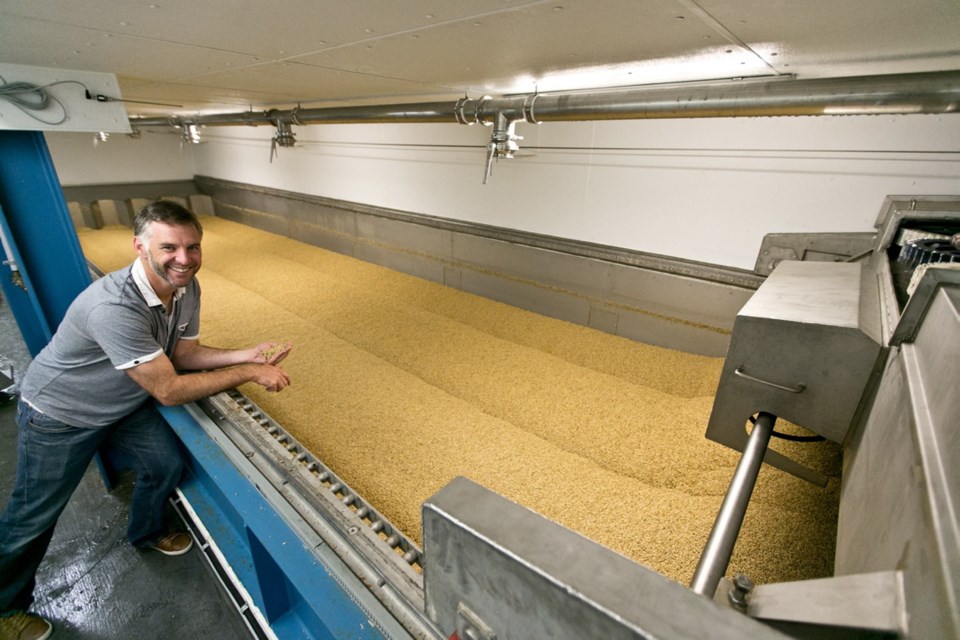Hard work and a series of what owner Matt Phillips calls “happy accidents” have in 14 years taken Phillips Brewing from a tiny Esquimalt garage into a large facility on the edge of downtown Victoria.
But it’s no accident that Phillips has become the largest beer producer on the Island, and there’s no luck in the fact the man behind it has once again added a new wrinkle to his beer making. He is now malting his own barley, a process in which grain germinates in water and is then dried, producing enzymes needed for brewing and distilling.
Phillips said malting is a dream that came to life not by accident, but rather after a few frosty beverages. He has established a full plant at his brewery and is in the process of malting for beer that will be available this fall, and for gin — and eventually whisky — to be sold under his Fermentorium Distilling label.
“I did always dream of this. I didn’t know what it would look like, but it’s something that’s been in the back of my head for a long time,” said Phillips, standing under the six silos he has installed on a concrete platform at the back of the brewery.
Four of the silos hold the malted barley, or malt. The two others, which can hold 50 tonnes, are there to hold Island-grown barley.
While the dream was always kicking around, it wasn’t until an old malting plant in Washington was being decommissioned that he got the urge to act on it.
While reclaiming old machinery from the site was deemed uneconomical, it did start a conversation about doing a malt plant from scratch.
“We realized we had the space and the people to do it,” Phillips said. “The financial argument was tough to make, but again it’s a passion play, so a couple of beers later we got the napkins out.”
The early schematics are now three dimensional, operational and have been working for a month. About 20 tonnes of malted barley will be produced in a week, which Phillips said is enough for seasonal and specialty beers and his distilling needs.
He said they will augment their malted barley supply a little and will continue to brew the brewery’s standard tipples as they are.
For Phillips, the new plant is both a throwback and an innovation. “One hundred years ago, every brewery did this,” he said, noting these days almost every brewery in North America buys its barley malted by one of four companies.
Phillips pointed out Coors malts in-house, and Anheuser-Busch has malting houses to supply some of their breweries. “But there’s no reason it couldn’t be a bigger thing. Canada grows good barley,” Phillips said, adding Vancouver Island produces great quality barley. He bought entire barley crops from several Peninsula producers, including Bryce Rashleigh and the Michell brothers. At this point, however, Phillips isn’t sure if it has a uniquely Island taste. They won’t know until they start brewing and distilling with it.
Phillips is quick to note it’s unlikely the craft-brewing industry is heading back to the days of malting in-house as the cost can be prohibitive and many craft brewers won’t have the space. Already some local brewers and distillers have asked about buying malted barley from Phillips.
Phillips would not disclose the cost of establishing the plant, and would say only “it’s a big cap bite, but we’re here for the long haul.”
But this isn’t all about money. “It opens a creative box, there’s an opportunity to bring [malting] in-house and make it the way we would like for individual beers, and we can use local barley,” Phillips said. He notes that is key for distilling which requires use of local ingredients. “This is boutique malting. It allows us to do local stuff and one-off malts to be used in specialty and small batches.”



